On LGBTI rights in Asia, a picture of diversity amid intolerance
Colin Stewart is a 45-year journalism veteran living in Southern…
Thirteen countries in Asia have one thing in common: Each one has a law that prohibits same-sex intimacy. But otherwise they are remarkably diverse, ranging from tiny Maldives (population 350,000) to huge India (population 1.3 billion) with societies displaying a wide range of attitudes toward their LGBTI citizens.
In some countries, such as India, many people are pushing for recognition of the human rights of LGBTI people. In many other Asian countries, though, the society is generally intolerant toward LGBTI citizens, so the path toward that goal is hard to see.
LGBTI rights in those 13 Asian countries are the focus of the following excerpts from the 2015 edition of the U.S. Department of State’s Country Reports on Human Rights Practices. The complete reports cover a variety of human-rights issues beyond those excerpted here, including workers’ rights; discrimination against women, children, minorities, indigenous people and others; torture; and civil liberties.
They’re all written from the perspective of the United States, although the U.S. is far from blameless with regard to human rights. Among many current examples, at least 14 U.S. states keep unenforceable anti-gay laws on the books; the United Kingdom has just issued a travel advisory warning about the discriminatory new laws imposed in North Carolina and Mississippi; and the U.S. still struggles to end its historic mistreatment of indigenous people and of racial, ethnic and other minorities.
This blog is reprinting LGBTI-focused excerpts about human rights in:
- Asia
- Sub-Saharan Africa
- Middle East and North Africa
- The Americas (Caribbean nations only)
- Oceania, with a separate post about Indonesia, because of the length of the report.
- Russia and nearby countries that have considered or adopted anti-“gay propaganda” laws.
Excerpts from the recently published U.S. State Department reports from 2015 begin here:
Afghanistan
While the constitution prohibits discrimination among citizens and provides for the equal rights of men and women, local customs and practices that discriminated against women prevailed in much of the country. The constitution does not explicitly address equal rights based on race, disability, or social status. There were reports of discrimination based on race, ethnicity, and gender.
The law criminalizes consensual same-sex sexual conduct, and there were reports that harassment, violence, and detentions by police continued. NGOs reported police arrested, detained, robbed, and raped gay men. The law does not prohibit discrimination or harassment on the basis of sexual orientation or gender identity.
Homosexuality was widely seen as taboo and indecent. Members of the lesbian, gay, bisexual, transgender, and intersex (LGBTI) community did not have access to certain health services and could be fired from their jobs because of their sexual orientation. Organizations devoted to protecting the freedom of LGBTI persons remained underground because they could not be legally registered. Members of the LGBTI community reported they continued to face discrimination, assault, rape, and arrest.
Bangladesh
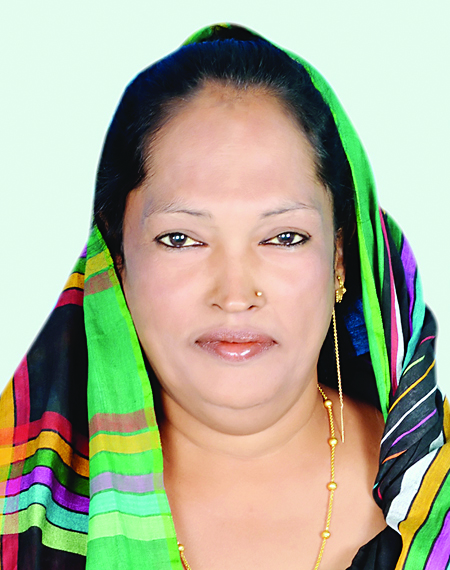
The law specifically prohibits certain forms of discrimination against women, provides special procedures for prosecuting persons accused of violence against women and children, calls for harsh penalties, provides compensation to victims, and requires action against investigating officers for negligence or willful failure of duty. Enforcement was weak. Laws regarding divorce, custody, and rape differed according to an individual’s religion and were often discriminatory toward women and girls. Women, children, minority groups, persons with disabilities, indigenous people, and sexual minorities often confronted social and economic disadvantages.
Consensual same-sex sexual activity is illegal, but the law was not enforced. Lesbian, gay, bisexual, transgender, and intersex (LGBTI) groups reported police used the law as a pretext to bully LGBTI individuals, particularly those seen as effeminate men. Some groups also reported harassment under a suspicious behavior provision of the police code. While the transgendered “hijra” population has long been a marginalized but recognized part of society, the government acknowledged the existence of the LGB population in its April 2013 Universal Periodic Review. This was contrary to its stance in the 2009 review, during which the foreign minister stated there were no LGB individuals in the country.
A person known as Dithi became the country’s first third-gender candidate for office when she competed in a December local election in Satkhira.
There were several informal support networks for gays, but organizations specifically to assist lesbians were rare.
Attacks on LGBTI persons occurred occasionally, but those offenses were difficult to document because victims desired confidentiality. Strong social stigma based on sexual orientation was common and prevented open discussion of the subject. Some public events, such as a rainbow-themed march during the capital’s main Bengali new year’s celebration, elicited little reaction from mainstream society.
[That situation had changed radically by spring 2016 with the murder of two LGBT activists and many others who displeased violent Islamic extremists.]
Bhutan
The constitution prohibits discrimination on the basis of race, sex, language, religion, politics, or other status. The government generally respected these prohibitions in practice, although societal discrimination existed.
The constitution guarantees equal protection of the laws and application of rights but does not explicitly protect individuals from discrimination for sexual orientation or gender identity. Laws against “sodomy or any other sexual conduct that is against the order of nature” exist. Under the penal code, the government can imprison a person for as long as one year for engaging in prohibited sexual conduct. In response to recommendations to decriminalize same-sex sexual conduct during the country’s Universal Periodic Review, the government stated the law “has never been evoked since its enactment for same-sex acts between two consenting adults. These provisions can be reviewed when there is a felt need for it by the general population.”
Homosexuality is a traditionally taboo subject, and the lesbian, gay, bisexual, transgender, and intersex (LGBTI) population has historically remained out of public view without an organized advocacy community. During 2014 several LGBTI groups established a public presence via social media. There were no NGOs in the country explicitly associated with LGBTI issues. There were no reports of violence directed against members of the LGBTI community, although social bias was present.
A small transgender community existed, and transgender individuals faced social stigma. The law does not provide any distinct legal status to transgender individuals, nor does it provide explicit protections.
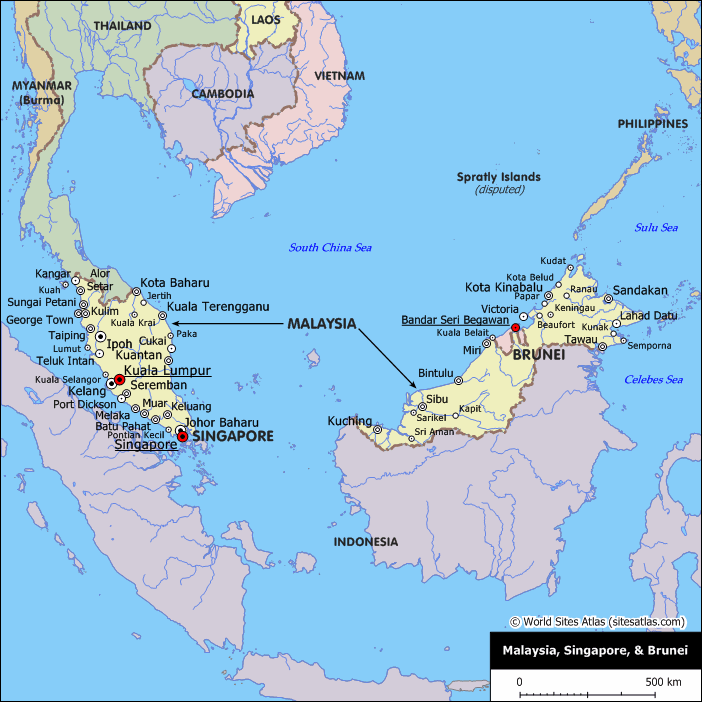
Brunei

The law does not contain specific provisions prohibiting discrimination based on race, gender, disability, language, sexual orientation, gender identity, or social status.
Secular law makes “carnal intercourse against the order of nature” a criminal offense punishable by a fine and up to 10 years’ imprisonment. In practice, this was interpreted to include sexual relations between men. The SPC [Sharia Penal Code] specifically bans sodomy between men or between a man and a woman not his wife and prohibits men from dressing as women or women dressing as men.
Two cases of cross-dressing were investigated under the SPC, resulting in one conviction of a man who was fined BND 1,000 ($600); one case remained open at year’s end. Although there were no reports of official or societal discrimination against lesbian, gay, bisexual, transgender, or intersex (LGBTI) persons in employment, housing, or access to education or health care, social stigma may have caused affected individuals to refrain from reporting such problems. Anecdotal information indicated that LGBTI individuals avoided disclosing their sexual orientations due to fear of societal or legal retribution. There were no NGOs working explicitly on human rights for LGBTI persons in the country.
[Without explanation, this account from the State Department does not discuss Brunei’s new penal code, approved in 2014, that calls for death by stoning for sexual crimes, including gay sex, adultery, rape and extramarital sexual relations. It also does not discuss the protests against the harsh new law.]
Burma [Myanmar]
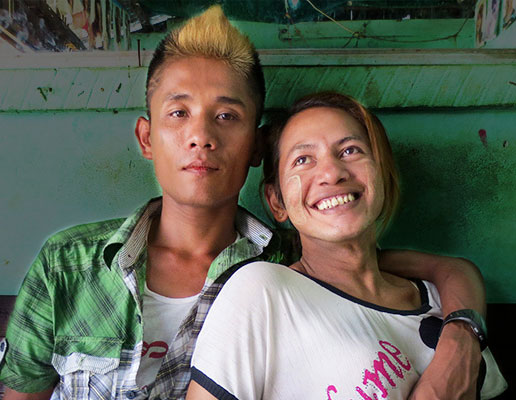
The constitution prohibits discrimination based on race, birth, religion, official position, status, culture, sex, and wealth, but the government did not effectively enforce antidiscrimination laws. Numerous laws, notably the 1982 Citizenship Law, contravene these provisions. The constitution and legal framework do not prohibit discrimination based on political opinion, national origin or citizenship, social origin, disability, sexual orientation or gender identity, age, language, and HIV-positive status or other communicable diseases.
Political reforms in the country led to more visible support for lesbian, gay, bisexual, transgender, and intersex (LGBTI) persons, including the formation of LGBTI rights organizations and their growing activities during the year. These changes made it easier for the LGBTI community to hold public events and openly participate in society. Despite this progress, consensual same-sex sexual activity remains illegal under section 377 of the penal code, which contains provisions against “sexually abnormal” behavior and entails punishments up to life imprisonment. Laws against “unnatural offenses” apply equally to both men and women. These laws were rarely enforced, but LGBTI persons reported that police used the threat of prosecution to extort bribes. LGBTI activists reported harassment by police, including arbitrary arrest (for example, for loitering) and detention. They also reported broad societal and familial discrimination.
There were reports of discrimination based on sexual orientation and gender identity in employment. LGBTI persons reported facing discrimination from medical care providers. The district-, regional-, and union-level courts rejected the Myanmar LGBT Rights Network’s lawsuit filed in 2013-14 against the Mandalay police for arresting and abusing 12 gay men, transgender persons, and NGO outreach workers involved in HIV/AIDS prevention. The investigation continued as of September.
India
The law prohibits discrimination based on race, gender, disability, language, place of birth, caste, or social status. The government worked with varying degrees of success to enforce these provisions.
The law criminalizes homosexual sex. Lesbian, gay, bisexual, transgender, and intersex (LGBTI) persons faced physical attacks, rape, and blackmail. Some police committed crimes against LGBTI persons and used the threat of arrest to coerce victims not to report the incidents. Several states, with the aid of NGOs, offered education and sensitivity training to police.
LGBTI groups reported that they faced widespread societal discrimination and violence, particularly in rural areas. Activists reported that transgender persons, who were HIV positive, continued to face difficulty obtaining medical treatment. Advocacy organizations, such as the Mission for Indian Gay and Lesbian Empowerment, documented workplace discrimination against LGBTI persons, including slurs and unjustified dismissals.

On January 28, a high court dismissed petitions challenging the 2013 Supreme Court judgment reinstating a colonial-era penal code provision criminalizing homosexual sex. The Supreme Court ruled that only parliament may change the law that bans consensual same-sex sexual activity. The media, activists, prominent individuals, and some government officials strongly criticized the ruling. On April 22, the Supreme Court agreed to hear an appeal of the December ruling. At year’s end, the appeal hearing was pending.
In January, Goa’s Sports and Youth Affairs Minister Ramesh Tawadkar announced state plans to establish new centers to administer treatment to LGBTI youth “to make them normal.” Goa’s Chief Minister later condemned the health minister’s remarks.
According to the Telangana transgender NGO Hijra Samiti, the state witnessed on average 10 physical attacks every month against transgender persons. In February, Hyderabad police arrested three individuals for the murder of Kummari Suresh, alias Pravalika, a transgendered person, after the victim refused to give money to the assailants during an attempted extortion.

In March, Tamil Nadu Uniformed Services Recruitment Board rejected K. Prathika Yashini’s application because her name did not match her birth name, “K. Pradeep Kumar.” Yashini had previously officially changed her name with all government agencies after undergoing gender reassignment surgery. Yashini successfully sued in Madras High Court for permission to take a written examination for the police force on May 23 and partook in field trials on August 5. Yashini became the country’s first transgender police officer in November.
On April 16, an acquaintance threw acid upon a transgender AIDS activist in Salem, Tamil Nadu.
In September the Supreme Court agreed to examine in detail the Gujarat government’s plea that it could not grant an entertainment tax exemption to the Gujarati film Meghdhanushya (Rainbow), which portrayed a young gay man’s suffering. The Gujarat government appealed to the Supreme Court after the Gujarat High Court in February 2014 ruled in favor of the tax exemption. Gujarat’s Commissioner of Entertainment earlier denied filmmaker Kiran Devmani the entertainment tax exemption, ruling the film storyline was unacceptable. The state’s rationale was that, under the law, a homosexual act was a criminal offense; Gujarat state could not grant tax exemptions to Gujarati movies promoting a “social evil” or undermining national unity.
LGBTI activists in Hyderabad expressed satisfaction with public awareness efforts, including protests against the Supreme Court judgment to uphold the criminalization of same-sex conduct. Hyderabad LGBTI students reportedly experienced homophobia among students and a systematic disregard for LGBTI rights on certain university campuses.
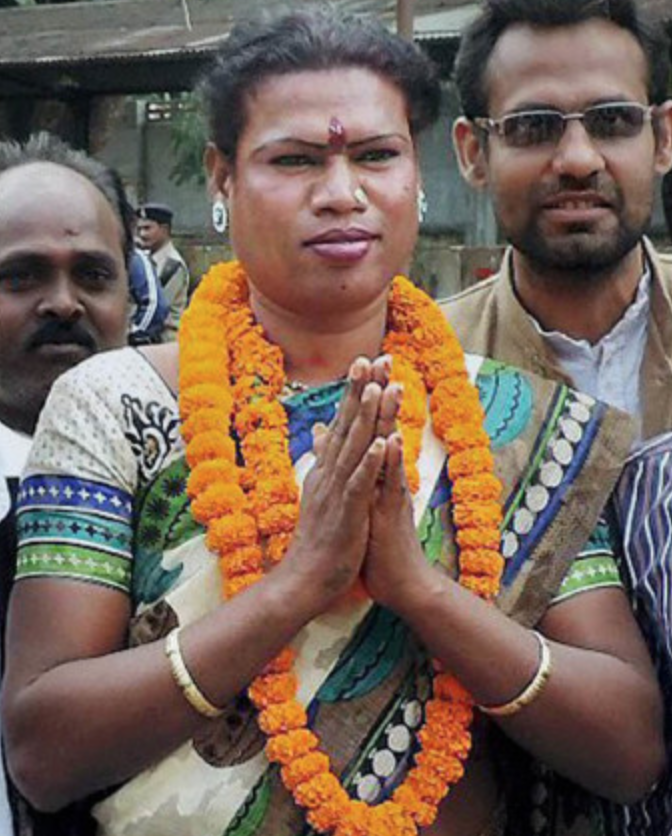
In January, Madhu Kinnar became the first transgender mayor when voters elected her in Raigarh, Chhattisgarh.
On June 23, the West Bengal government started a West Bengal Transgender Development Board. The transgender community comprises half of the board members. The West Bengal’s Social Welfare Minister chairs the board that convenes every month.
On July 1, the Odisha state government created the Department of Social Security and Empowerment of Persons with Disabilities with responsibility for evolving welfare programs for transgender persons. On September 24, the department formed a state level committee with representation from transgender activists to recommend social security policies and welfare measures.
In the August elections in Bangalore, 1,184 transgender persons registered to vote. According to civil society, there are presently 10,000 transgender persons in Bangalore.
Malaysia
The constitution provides for equal protection under the law and prohibits discrimination against citizens based on race, gender, religion, descent, or place of birth. The constitution caveats this provision, however, by establishing a “special position” for ethnic Malays and the indigenous groups of the eastern states of Sabah and Sarawak (collectively, “bumiputra”), and discrimination based on this special position persisted. The law is silent on discrimination based on disabilities and sexual orientation.

The penal code states that sodomy and oral sex acts are “carnal intercourse against the order of nature,” but authorities rarely enforced it. It was, however, the basis for the controversial case against parliamentary opposition leader Anwar Ibrahim, currently serving a five-year sentence. Religious and cultural taboos against same-sex sexual conduct were widespread.
Authorities often charged transgender individuals under the Minor Offenses Act for “indecent behavior” and “importuning for immoral purposes” in public. Those convicted of a first offense faced a maximum fine of RM 25 ($5.86) and a maximum sentence of 14 days in jail. The sentences for subsequent convictions may be maximum fines of RM 100 ($23.46) and a maximum of three months in jail. Local advocates contended that those imprisoned served their time in the male prison population where police and inmates often abused them verbally and sexually.
In October the country’s highest court declined to uphold a lower court decision that found laws forbidding cross-dressing unconstitutional, instead requiring the applicants to exhaust remedies in the sharia court where the case originated.
Maldives
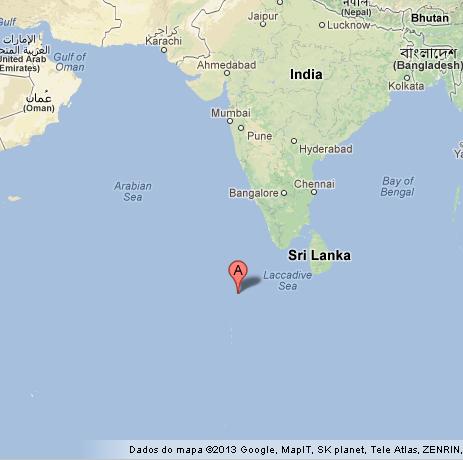
The constitution provides for the equality of all citizens, but the law requires citizens to be Sunni Muslims. Women have been historically disadvantaged, particularly in the application of Islamic law in matters such as divorce, education, inheritance, and providing legal testimony, including on rape. In 2012 the administration re-established the Ministry of Gender, Family, and Human Rights, which in November 2014 was renamed the Ministry of Law and Gender. Foreign-born workers face employment discrimination and lack adequate protection under the law.
The law prohibits same-sex sexual conduct. The punishment for men includes banishment for nine months to one year or 10 to 30 lashes. For women the punishment is house arrest for nine months to one year. No organizations focused on lesbian, gay, bisexual, transgender, and intersex (LGBTI) problems in the country. There were no reports of officials complicit in abuses against LGBTI persons, although societal stigma likely discouraged individuals from reporting such problems. Due to societal intolerance of same-sex sexual relationships, there were few openly LGBTI individuals in the country and no information available on official or societal discrimination based on sexual orientation in employment, housing, access to education, or health care. NGOs reported several members of the LGBTI community sought refuge in Sri Lanka after societal shaming related to their sexual orientation.
Pakistan
The constitution provides for equality for all citizens and broadly prohibits discrimination based on race, religion, caste, residence, or place of birth, but significant governmental and societal discrimination occurred based on each of these factors.
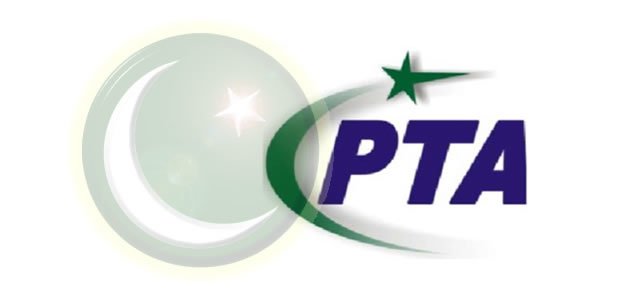
Consensual same-sex sexual conduct is a criminal offense; however, the government rarely prosecuted cases. The penalty for same-sex relations is a fine, two years’ to life imprisonment, or both. Lesbian, gay, bisexual, transgender, and intersex (LGBTI) persons rarely revealed their sexual orientation or gender identity. No laws protect against discrimination on the basis of sexual orientation or gender identity. Discrimination against LGBTI persons was widely acknowledged privately, but insufficient data existed for accurate reporting, due in part to severe societal stigma and fear of recrimination on the part of any who came forward. In September 2013 the PTA [Pakistan Telecommunication Authority] blocked the country’s first online platform for the LGBTI community to share views and network.
Violence and discrimination continued against LGBTI persons. In April, two members of the transgender community were killed and a third abducted and raped. In June authorities arrested two men in Balochistan for allegedly getting married and charged them with violating the penal code after a medical examination indicated they had intercourse with each other.
Society generally shunned transgender persons, eunuchs, and intersex persons, collectively referred to as “hires,” who often lived together in slum communities and survived by begging and dancing at carnivals and weddings. Some also were prostitutes. Local authorities often denied hijras places in schools or admission to hospitals, and landlords often refused to rent or sell property to them. Authorities often denied hijras their share of inherited property. A 2012 Supreme Court ruling recognizes hijras as a “third gender” and allows them to obtain accurate national identification cards. Because of the ruling, hijras fully participated in the 2013 elections for the first time as candidates and voters.
Singapore

The constitution states that all persons are equal before the law and entitled to equal protection of the law, and the government generally respected these provisions; there is no explicit provision granting equal rights to women. Articles 12(2) and 16(1) explicitly prohibit discrimination against citizens solely on the ground of religion, race, descent, or place of birth. Article 152 stresses the protection of the rights of racial and religious minorities. Mindful of the country’s history of intercommunal tension, the government took numerous measures to provide for racial, ethnic, religious, and cultural nondiscrimination. Social, economic, and cultural benefits and facilities were available to all citizens regardless of race, religion, or gender.
Section 377a of the penal code criminalizes and punishes male-to-male sexual relations as follows: “Any male person who, in public or private, commits, or abets the commission of, or procures or attempts to procure the commission by any male person of, any act of gross indecency with another male person, shall be punished with imprisonment for a term which may extend to two years.” The law does not criminalize female-to-female sexual relations.
After the failure of a 2007 attempt to repeal this provision, Prime Minister Lee stated that authorities would not actively enforce the statute.
In 2014 the Court of Appeals rejected a constitutional challenge, finding that 377a did not contravene the equal protection clause.
No laws explicitly provide for the protection of the LGBTI community from discrimination based on sexual orientation. Moreover, as single persons are prevented from purchasing government housing reserved for married couples until age 35, LGBTI persons were more susceptible to these restrictions.
In two surveys of LGBTI citizens conducted in the last three years–the Homophobia and Transphobia Survey 2012 and the National LGBTI Census 2013–the majority of LGBTI persons reported having experienced abuse or bullying on the basis of sexual orientation or gender identity at some point while growing up.
Recruitment procedures do not bar members of the LGBTI community from military service but classify LGBTI military personnel by sexual orientation and evaluate them on a scale of “effeminacy.” LGBTI citizens may become government workers but must declare their sexual orientation on job applications. Changing of gender on official documents is allowed only through sex reassignments. Media censorship perpetuated negative stereotypes of LGBTI individuals by restricting portrayals of LGBTI life. The MDA continued to censor films and television shows with LGBTI themes. According to the MDA website, authorities allow the broadcast of LGBTI themes on television, “as long as the presentation does not justify, promote, or glamorize such a lifestyle.”
Sri Lanka
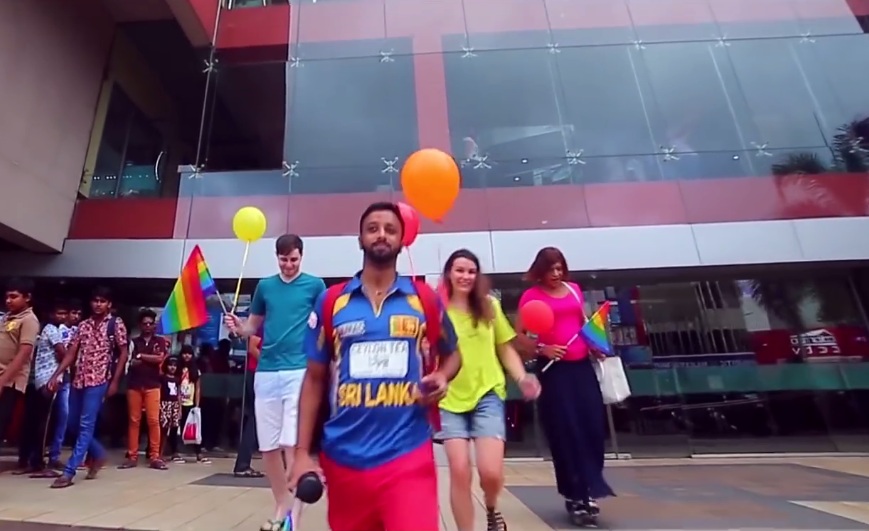
The law prohibits discrimination based on race, sex, gender, disability, language, or social status, and the government generally respected these rights in practice. The constitution also has provisions that prohibit discrimination regarding religion, caste, political opinion, and place of birth. There were instances, however, in which gender, religious, disability and ethnic-based discrimination occurred.
Three legal statutes constitute the architecture for discrimination against the lesbian, gay, bisexual, transgender, and intersex (LGBTI) persons in the country: Section 365(A) of the penal code that criminalizes acts “against the order of nature”; Section 399 of this code regarding “Cheating by Personation”; and the Vagrancy Ordinance. Section 365(A), although lacking clear legal definition, puts those convicted of engaging in same-sex sexual activity in private or in public at risk of 10 years’ imprisonment.
There were reports that police harassed, assaulted, and extorted money or sexual favors from LGBTI individuals.
UN human rights officials noted police used the Vagrancy Ordinance to target and harass transgender individuals on suspicion they were prostitutes. Police used Section 399 to harass persons who express themselves in gender nonconforming ways on grounds of “impersonation.” Actual criminal prosecutions under these statues were rare, however. Human rights organizations reported that, while not actively arresting and prosecuting members of the LGBTI community, police harassed and extorted money or sexual favors from LGBTI individuals with impunity and assaulted gay men and lesbians in Colombo and other areas.
Discrimination against LGBTI persons remained a problem. There were reports that persons undergoing gender-reassignment procedures had difficulty amending government-issued identity documents to reflect those changes, hindering their ability to procure employment, and obtain housing. One transgender individual noted persons from her community could apply for new government-issued identity documents only after having undergone a full course of sexual reassignment surgery. Furthermore, the process of obtaining identity documents was not just procedural but required a court order and judge’s ruling. The Centre for Sex Workers’ Rights claimed that public schools sometimes refused to enroll the children of commercial sex workers but did not provide estimates of the number of schools involved or children affected. A civil society group that worked to advance LGBTI rights reported close monitoring by security and intelligence forces.
Turkmenistan

Although the law prohibits discrimination based on race, gender, disability, language, ethnic minority status, or social status, discrimination continued to be a problem, as did violence against women.
Same-sex sexual contact between men is illegal under a section of the criminal code on pederasty, with punishment of up to two years in prison and the possible imposition of an additional two- to five-year term in a labor camp. The law also stipulates sentences of up to 20 years for repeated acts of pederasty, homosexual acts with juveniles, or the spread of HIV or other sexually transmitted infections through same-sex contact. The law does not mention same-sex sexual contact between women. Enforcement of the law was selective. Antidiscrimination laws do not apply to lesbian, gay, bisexual, transgender, and intersex (LGBTI) persons. Society does not accept transgender individuals, and the government provided no legal protection or recognition of their gender identity.
There were reports of detention, threats, and other abuses based on sexual orientation and gender identity. No official information was available regarding discrimination against LGBTI individuals in employment, housing, statelessness, access to education, or health care. Since same-sex sexual activity and nonconforming gender identity were taboo subjects in the country’s traditional society, observers noted social stigma prevented reporting of incidents.
Uzbekistan
The law and constitution prohibit discrimination on the basis of race, gender, disability, language, and social status. Nonetheless, societal discrimination against women and persons with disabilities existed, and child abuse persisted.
Sexual relations between men are punishable by up to three years’ imprisonment. Although there have not been any known arrests or convictions under this provision since 2003, according to members of the lesbian, gay, bisexual, transgender, and intersex (LGBTI) community, police and other law enforcement personnel used the threat of arrest or prosecution to extract heavy bribes from gay men. In November, CA-News reported that police threatened to charge a young man who had complained about shortages of electricity with homosexual activity. The law does not criminalize same-sex sexual activity between women.
Same-sex sexual activity was generally a taboo subject in society, and there were no known LGBTI organizations. There were no reports of official or societal discrimination based on sexual orientation or gender identity in employment, housing, statelessness, or access to education or health care, but observers attributed the absence of such reports principally to the social taboo against discussing same-sex relationships.




